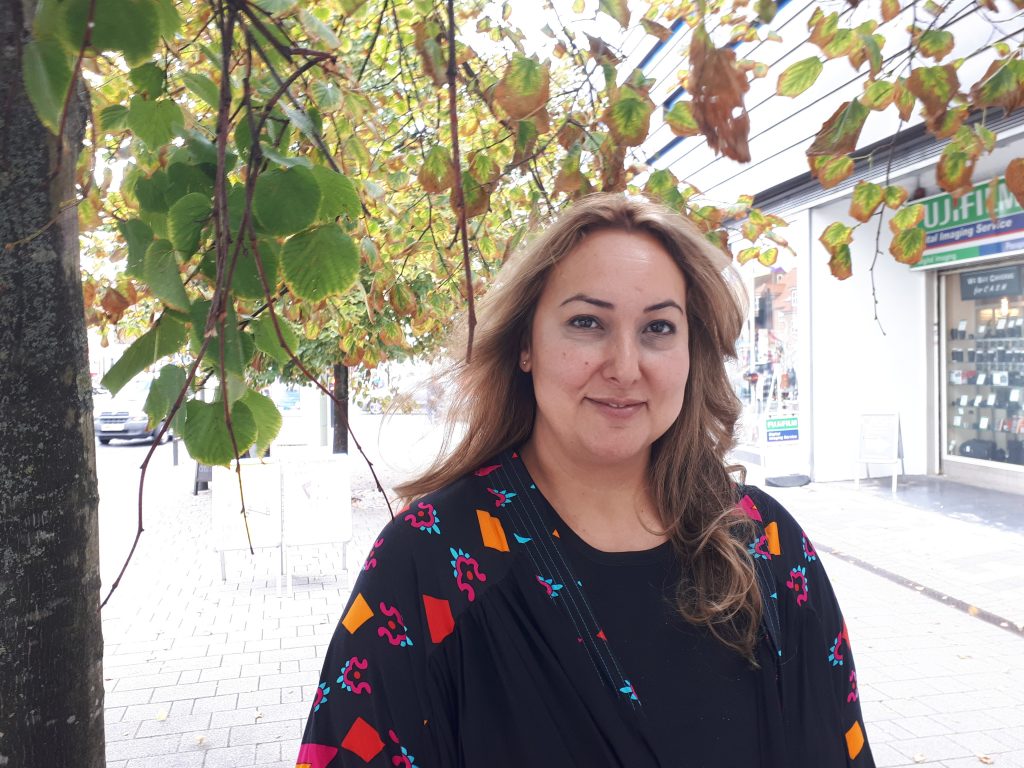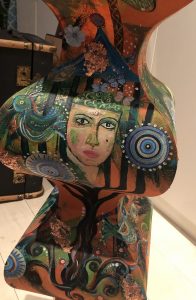Read Reem's story

Reem looks after her adult son, who has autism
My son was diagnosed with autism as a small child. In special school his autism was managed well and was very happy. He was simply a child that needed special help. In his teens, however, things started to go wrong, and we entered into a horrific time. He suffered awful experiences in residential care – a protracted and extremely difficult time. I had to fight furiously on his behalf and suffered terribly with my mental health. However, now, things are different.
Reem and her son today
My son is now in supported living, and he is so happy there.
It is an hour and a half away. But it’s great. I visit at least twice a week. He has his own flat, and staff there who help look after him. He’s going to college (doing arts and pottery), and has friends and a social life.
But as his mother, I’m still the main carer. I need to be there to observe how he is being treated and his reaction to the carers. I think I will never relax and trust people but at least we are starting to enjoy being alive and together.
I feel so much better myself now that he is happier
I love life. I’m in a good place now. I’ve managed to turn things around for him, and me. It is the best outcome for him.
I had an art degree, and took art therapy courses, and that really helped me and opened a lot of doors. I was able to understand myself better and look at things differently – I learned to acknowledge bad things have happened, but also acknowledge these can’t be changed, then move on.
I started to teach special needs arts classes which is incredibly rewarding. I’d like to run a class for carers where we can be carers together, share our problems, have fun.

I’m back in work now, part-time though, as I realise I both need time for him and time for myself. So I as well as work I teach art, make art, sell antiques etc. There’s lots of ways to make a living.
I also have a dog that does therapy – she has the perfect temperament and obviously she’s fantastic with my son. He’s so happy when he sees her; he walks her, plays with her, just sits with her. I also take her to hospitals, patients brush her, throw a ball, just stroke her – it’s very soothing.
Coping with caring
I’ve always been a positive person. I’m always creating art. Some people come home from work and turn on the TV. I create!
And I think a sense of humour helps a lot. You sometimes have to make fun of situations to get through them. I’m also a fighter, sometimes you just have to keep going and do things yourself because no one else will. I think my creative approach helps too – if something doesn’t work, you think and try something else.
Also, realise what you can do, and also what you need help with. Use your time well, and make sure there’s time for you. Look after yourself (I was so busy making appointments for my son I failed to look after myself. You’re spending so much time in hospitals, in meetings, you forget your own needs.) Acknowledge your own ageing – you will have decreased energy over time. And ensure you get a break – if you don’t you’ll slowly get sad and feel your life is slipping away. Make time for you.
Action for Carers
The council contacted me about Action for Carers. I think I didn’t initially understand what they could do for me – I probably was still thinking then that I could do it all alone.
I was wary about going to events and meeting other people – I didn’t want to hear more sad stories. But I did go, and I’ve since enjoyed events where I’ve met other carers and shared our experiences. There’s that sense of camaraderie, belonging and understanding. I’d look at other people and they were nodding, understanding.
I’ve also gone to other ACS events, such as outings, social events, relaxation days; and I’ve done Recovery College course too.
It’s so important as carers that we have time to enjoy ourselves.
It’s important to share your story too. Just speaking about your experience brings out all the emotions. And the more you do that, the more you start to open up. Lots of people find it difficult to talk feelings, especially men, but you have to. And without you saying how you are really feeling, people won’t know how to help you.
I bet if you put 10 carers together in a room everybody would have something useful or helpful to tell somebody else; something of worth.
